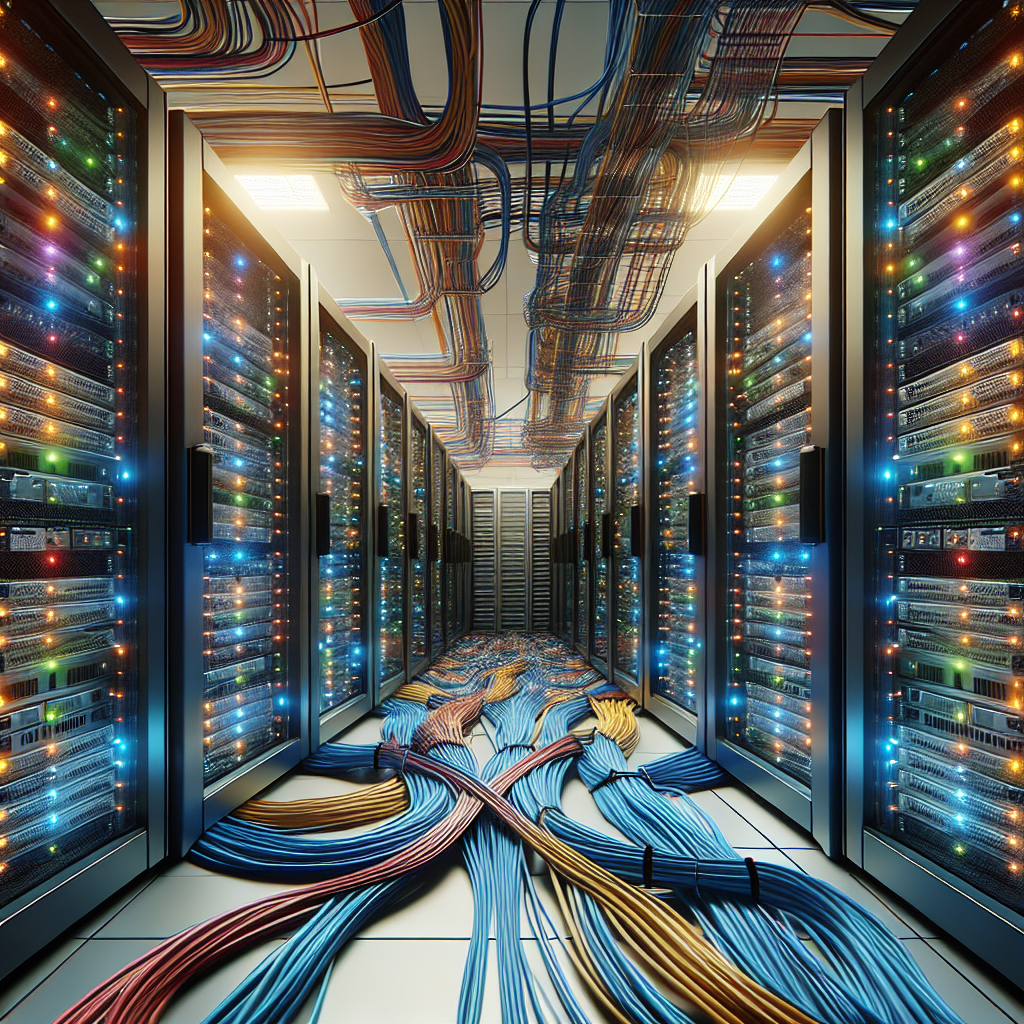The Role of Data Center Cabling in Ensuring Network Reliability and Performance
In today’s digital age, data centers play a crucial role in ensuring the smooth operation of various organizations and businesses. These facilities are responsible for storing, processing, and transmitting large amounts of data, making them the backbone of modern technology infrastructure. However, the reliability and performance of a data center’s network heavily depend on its cabling infrastructure.
Data center cabling refers to the physical infrastructure that connects servers, storage devices, networking equipment, and other components within a data center. It includes cables, connectors, switches, routers, and other networking devices that facilitate the transmission of data between different parts of the facility. The proper design and installation of data center cabling are essential for ensuring network reliability and performance.
One of the key roles of data center cabling is to provide a high-speed and reliable connection between various network components. With the increasing demand for faster data transfer speeds and greater bandwidth capacity, data center cabling must be able to support the transmission of large volumes of data at high speeds. This requires the use of high-quality cables and connectors that are capable of handling high data rates and minimizing signal interference.
In addition to providing high-speed connectivity, data center cabling also plays a critical role in ensuring network reliability. A well-designed cabling infrastructure can help reduce network downtime and prevent data loss by minimizing the risk of cable failures and signal disruptions. Proper cable management practices, such as organizing and labeling cables, can also make it easier to troubleshoot and maintain the network, leading to improved overall reliability.
Furthermore, data center cabling can impact network performance by affecting factors such as latency, bandwidth, and data transfer speeds. By using the right type of cables and connectors, data center operators can optimize network performance and ensure that data is transmitted efficiently and effectively. Additionally, regular maintenance and upgrades of cabling infrastructure can help prevent performance bottlenecks and ensure that the network meets the evolving needs of the organization.
Overall, data center cabling plays a crucial role in ensuring the reliability and performance of a data center network. By investing in high-quality cabling infrastructure, organizations can improve the efficiency of their operations, enhance data security, and ultimately, deliver a better experience for their users. As technology continues to advance and data center networks become more complex, the importance of data center cabling in ensuring network reliability and performance will only continue to grow.


